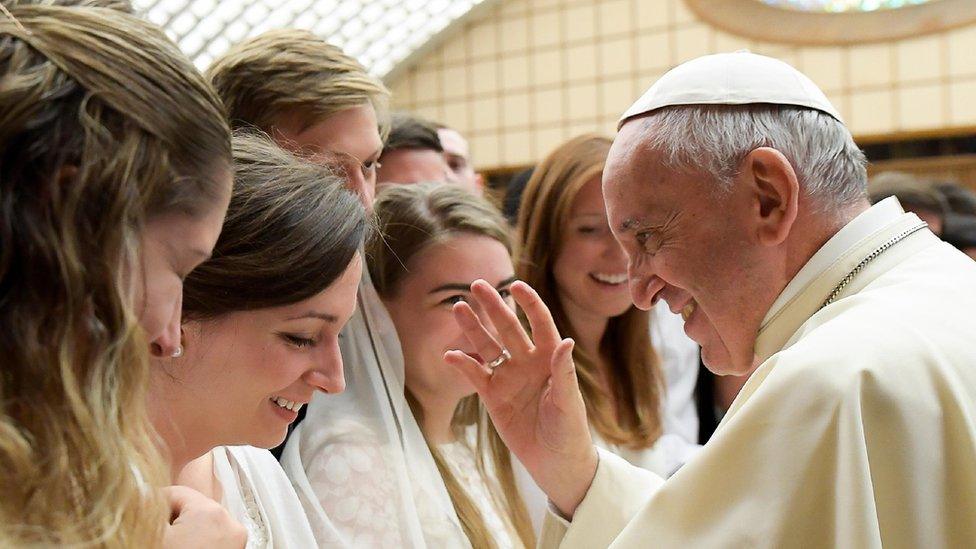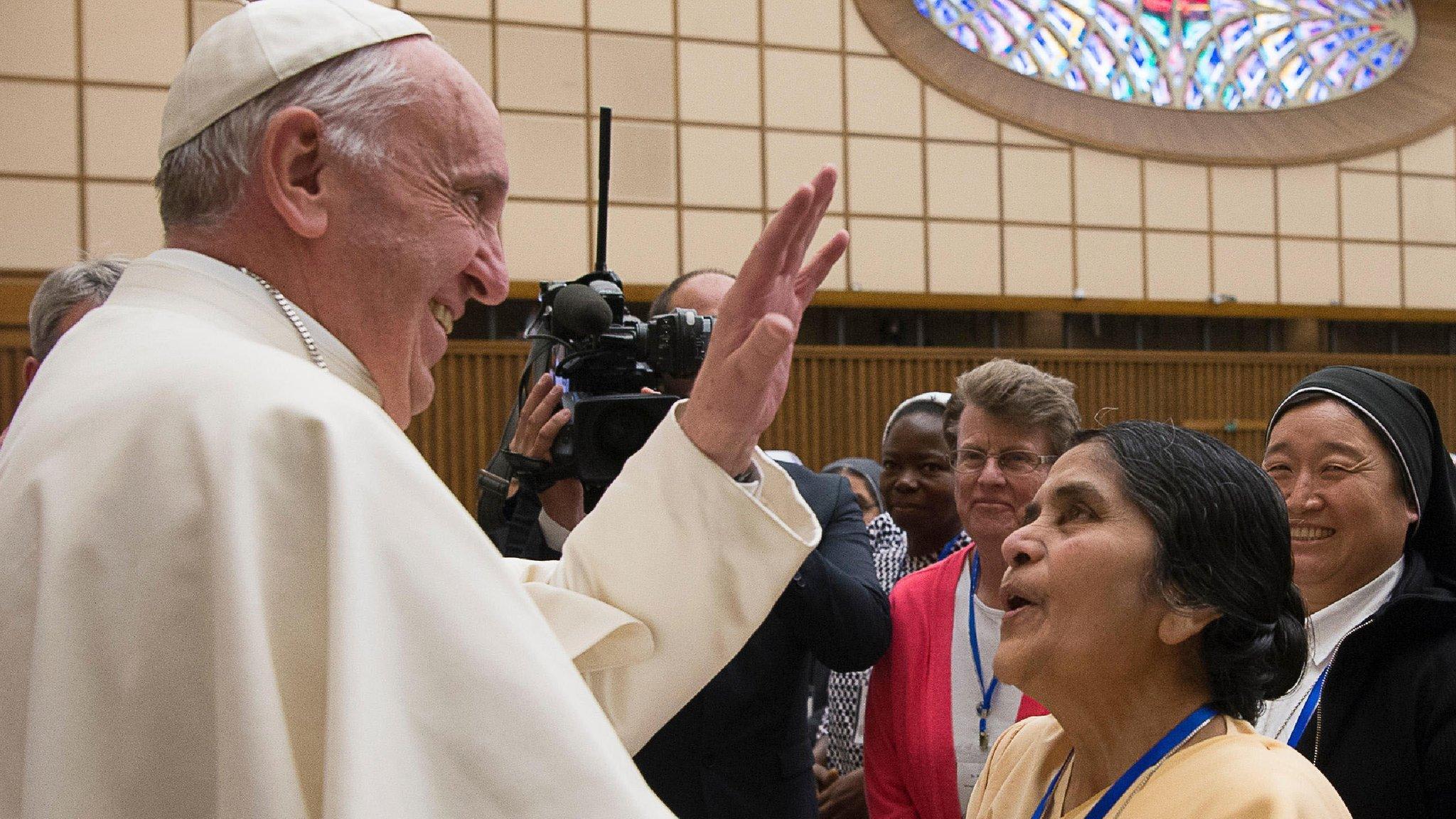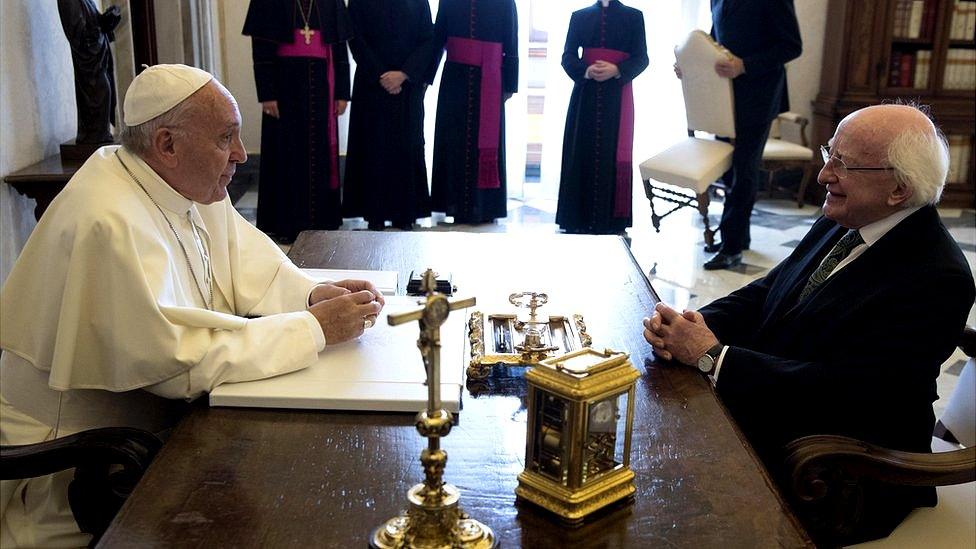Women priests 'could celebrate Mass better than men'
- Published

Fr Roy Donovan is an outspoken supporter of women priests
Women priests could celebrate Mass better than men because they are "more familiar with the shedding of blood", an Irish parish priest has said.
Fr Roy Donovan said childbirth and menstruation meant women "were more used to sacrifice and suffering".
A woman saying "this is my body, this is my blood," during the sacrament of the Eucharist could give it more meaning, he said.
"Many females give up their bodies, just as Jesus did," he told the BBC.
Fr Donovan, parish priest of Caheronlish/Caherline in County Limerick, is an outspoken supporter of women priests.
He said he was trying to counteract the Catholic Church's argument that only a male could celebrate the Eucharist - a ritual service of thanksgiving to God which centres on the consecration of bread and wine and their distribution at Communion.
Roman Catholics believe the bread becomes the body of Jesus, and the wine his blood, in the process of their blessing by a priest, and that sharing it at Eucharist or Holy Communion commemorates the Last Supper shared by Jesus and his apostles, and Jesus' sacrificial death by crucifixion.
"The bottom line is that despite being equal to men by virtue of their baptism, women are excluded from all positions of authority, decision making and ministry," he said.

Pope Francis has set up a special commission to study whether women will be allowed to become deacons
He first made the comments in an interview with the Irish Times, external, where he also expressed his objection to the introduction of a male-only permanent body of deacons in his archdiocese before completion of a report by the papal commission on women deacons.
Deacons are a clergy rank one below priest.
Currently all Catholic priests and deacons are male. Priests must be celibate, but deacons can be married men.
The BBC has contacted the Diocese of Limerick for comment.
- Published2 August 2016

- Published22 May 2017
